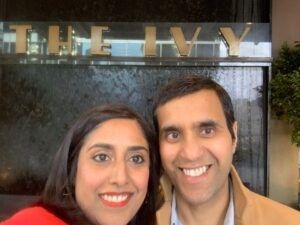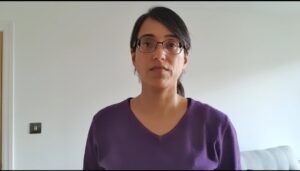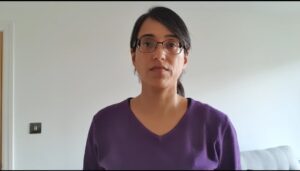
By: Eastern Eye
THE life-saving issue of organ donation, which is rarely discussed, has directly affected many within the south Asian community due to a shortage of donors and subsequent lack of matches.
Farhan Sattar was one of those affected, who didn’t get a lifesaving heart donation in time and sadly passed away at the age of 43. His sister, Dr Iram Sattar, tells the deeply emotional story of a hardworking son, loving husband and devoted father of four young children, in the hope that it raises awareness about organ donation and inspires people to help save lives even after they are gone
“My younger brother Farhan was born with a heart problem. His heart and lungs weren’t connected properly, so blood carrying oxygen couldn’t be pumped throughout his body. He needed lifesaving surgery when he was a few days old and spent most of his first year of life in hospital. After that, he led a pretty normal life. He played football, loved travelling and worked in the banking sector. He got married to Sira and had four children.
He was a dutiful son, caring brother and uncle and a loving husband, but most importantly, a super dad, or Iron Man, to his four young boys, aged five, three and one-year-old twins. Iron Man also needed a heart, is how he explained it to his young kids.
One day, he felt breathless and was admitted to hospital. He had a chest infection and was told his heart was getting weaker. We knew his heart would weaken with age, but had been told by doctors it would occur in his late fifties or sixties, compared to late 70s for those without his condition. My 42-year-old brother was focused on looking after his family, including the new born twins.

After collapsing at home, he was admitted to hospital in Manchester and was told he needed a heart transplant. This was a shock to us all.
He had to be transferred to Newcastle hospital, which is the only one in the UK that is equipped to do transplants for his type of heart problem. Newcastle is a three-hour drive from his family home in Manchester, so we took turns to visit him. I offered to stay in the hospital, as the family didn’t want him to be alone. But he declined, saying: “If you want to help, look after my Sira [his wife] and children. They need you more than me. If I’m so ill that I can’t speak for myself, then come here.”
Farhan was on the super urgent heart transplant waiting listing from August 2022 to midDecember that year. Despite there being only a handful of people on that list, he didn’t get a single heart match.
When it became apparent that he was running out of time and may not get a donor heart, Farhan opted for an artificial mechanical heart that runs on an external battery pack you carry around (a ventricular assist device).
Unfortunately, the night before surgery, he developed an infection which rapidly turned into sepsis. The medical team tried their best to treat it, including an external heart and lung machine. However, his body was too weak, and nothing worked. It was too late. He wasn’t going to make it.
A few days before passing away, he managed to speak to most of the family. Farhan told them he loved them, said sorry and asked for forgiveness. The palliative care doctor later explained that these three things bring people most comfort when they’re dying – I love you, I’m sorry, forgive me. Little did we know that Farhan was saying his goodbyes.
Farhan died peacefully on Wednesday, December 14, 2022, leaving behind a wife and four very young children. When his three-year-old was told of his father’s passing, he said, “Yes, I know, daddy told me last night and now he’s flying in the sky.” Farhan was part of the 18 per cent of south Asians waiting for an organ. The odds were stacked against him. To get a heart transplant, the donor heart has to be matched, which means tests have to be done to make sure your body won’t reject the new heart. And you’re more likely to get a match from the same genetic background – from another Asian.



There’s reluctance to be an organ donor due to various reasons, such as lack of consideration, religion and concerns about what will happen to the donor’s body. I want South Asians to think about whether they would be willing to take a life-saving organ if they needed it. If the answer is yes, then why the reluctance to be a donor?
I would urge people to thoroughly research organ donation, along with discussing it with family, friends, and faith leaders/scholars. There is plenty of information and literature out there. In 2019, for instance, Mufti Mohammed Zubair Butt, who’s been working in the organ donation field for 26 years, published a 111-page document on why organ donation is permissible in Islam. He meticulously examines each argument, providing valuable insights. Other religious scholars have done the same.
The important thing is that in organ transplantation, there is no intent to harm the donor body. In fact, the intent is to save a life. And the right to life outweighs any other concerns. Allah says in the Quran that “whoever saves a life, it would be as if they saved the life of all mankind” (verse 5.32).
If you do decide to be an organ donor, register yourself on the donor list. If you don’t inform anyone, your wishes could be overridden by your family, as the medical team won’t want to upset those who have lost a loved one. You only need to tell one or two people close to you. It could lead to one or more lives being saved.
If I could persuade just one person to become a donor, sharing Farhan’s story would have been worth it. Had there been more Asians on the donor register, he may even have received a heart.”
(As told to Asjad Nazir)
Visit www.organdonation.nhs.uk
Special thanks to Muslim Women’s Network UK– www.mwnuk.co.uk


